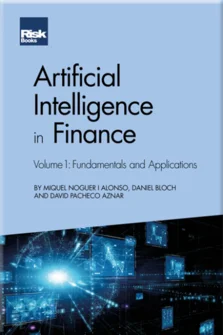Financial engineering
Miquel Noguer i Alonso, Daniel Bloch and David Pacheco Aznar
Financial engineering
Financial markets are complex systems that include feedback, multi-agent data, partially observable data, stochastic data and non-stationary data. Therefore, “complex systems” is often used as a broad term encompassing research approaches to problems in such diverse disciplines as statistical physics, information theory, non-linear dynamics, anthropology, computer science, meteorology, sociology, economics, psychology and biology.
Financial markets and many other complex systems rely on strong mathematical assumptions that allow researchers to forecast and understand the stochastic evolution of financial asset prices and returns. Common assumptions are that stochastic processes and random variables are independent and identically distributed (iid). Another assumption is that financial time series are either stationary or can be made stationary by applying some transformation. Unless these assumptions hold, it is difficult or impossible to make a guaranteed generalisation.
3.1 FINANCIAL ENGINEERING HISTORY
The role of mathematics in today’s economy and finance has come a long way since the development of Leon Walras and Wilfredo Pareto’s equilibrium theory in the 19th century (Figure 3
Copyright Infopro Digital Limited. All rights reserved.
As outlined in our terms and conditions, https://www.infopro-digital.com/terms-and-conditions/subscriptions/ (point 2.4), printing is limited to a single copy.
If you would like to purchase additional rights please email info@risk.net
Copyright Infopro Digital Limited. All rights reserved.
You may share this content using our article tools. As outlined in our terms and conditions, https://www.infopro-digital.com/terms-and-conditions/subscriptions/ (clause 2.4), an Authorised User may only make one copy of the materials for their own personal use. You must also comply with the restrictions in clause 2.5.
If you would like to purchase additional rights please email info@risk.net











